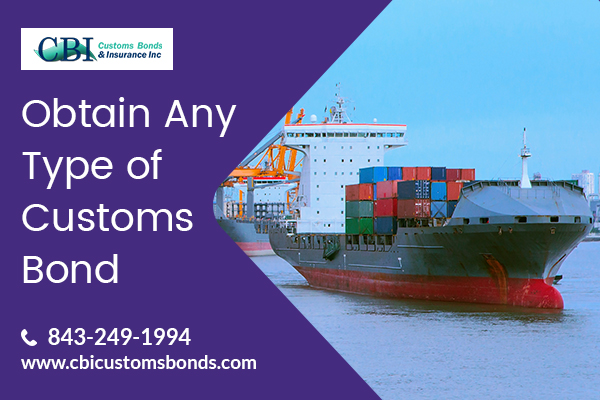Customs Clearance and Continuous Customs Bond
When you import commercial goods to the United States,
you’re required to post a potential “bond” for customs clearance. Apart from
bonds, importers have to present a hard copy of the commercial invoice that
contains the history of all transaction made between two merchandisers during a
specific period of time. At the arrival of your shipment at a particular port
of call, the authorized officers of the U.S. Customs and Border Protection
(CBP) will ask for power of attorney (POA) by the broker/carrier.
At the entry time when the vessel reaches the destination,
the consignee needs to present a well-formatted delivery note on behalf of the
actual owner of the shipment. After the examination, the officers may release
the container. It usually happens when they confirm that no regulation and
rules had been violated by the importer during the transaction. Here you might
have to wait for some additional documentation designed for valid entry of trade
in the country.
Let’s know about continuous
customs bond first. The aforementioned information is a formal piece of
necessary requirements. When we talk about bonds it much sounds like the insurance
of things that we commonly made. We have to purchase insurance for our cars,
bicycles, and there are plenty of insurance policies when you look in the
market. But the customs bond has quite a different story. There are mainly two
types of bond – Continuous Customs bond
and Single Entry Bond. Both the documents has classified different according to
their statuses.
A continuous customs
bond is valid for all importation made within a year. A licensed ocean
freight forwarder can post your material. Customs brokers are authorized
companies or personas by the US government to undertake the responsibility of
filing different types of bond on behalf of respective importers through
official website of CBP.
These types of customs
bond can be used for all the merchandise carried out in a year and it
automatically gets renewed. Brokers have to take a proper examination to obtain
a legal permit of helping other traders in acquiring bonds. They fill a specific
form of 301 customs bond to arrange
payment of duties, taxes, and fees of the principal.
There are a few special laws enforced by the federal agency
CBP for commodities that come under the regulation of different departments
like Food and Drug Administration (FDA), Environmental Protection Agency (EPA)
etc.
A single entry bond is valid for one-time
importation in a single year. But this bond is comparatively expensive than the
other one and one need to fill ISF with it. In continuous customs bond, importer
doesn’t need to fill additional ISF as it is combined with it. Remember that these
documents act as evidence that you are trading legally as an authentic company
and capable of reimbursement in any bond insufficiency.


Comments
Post a Comment